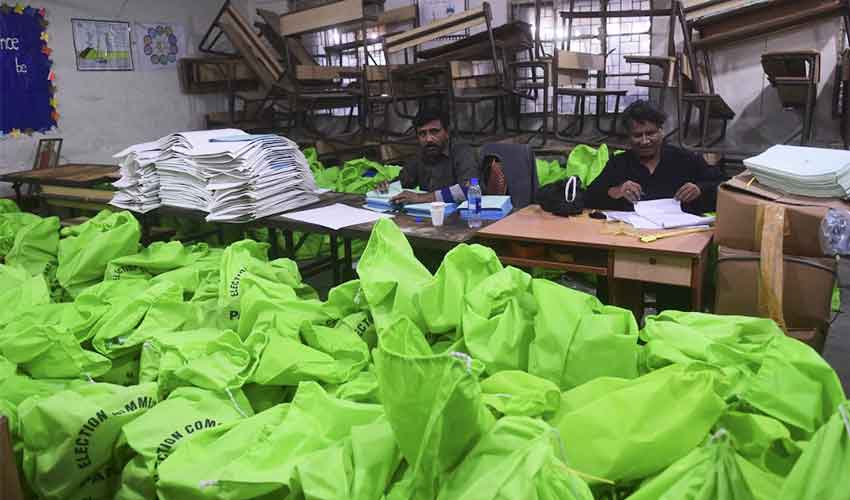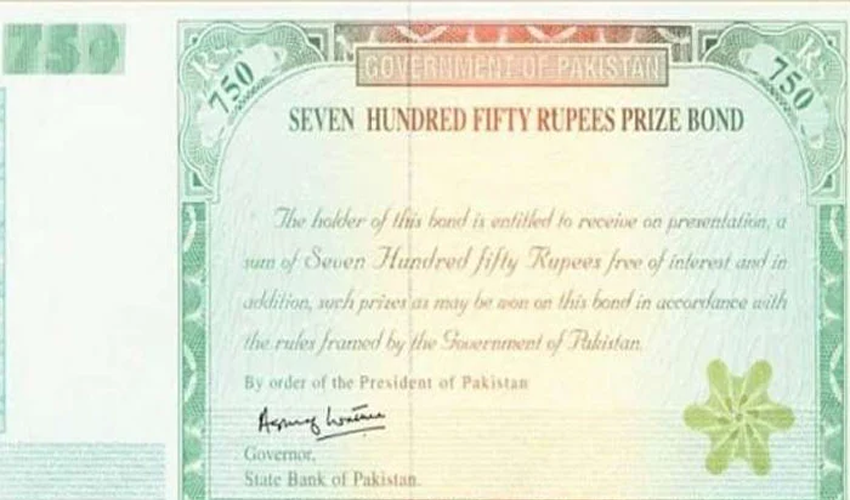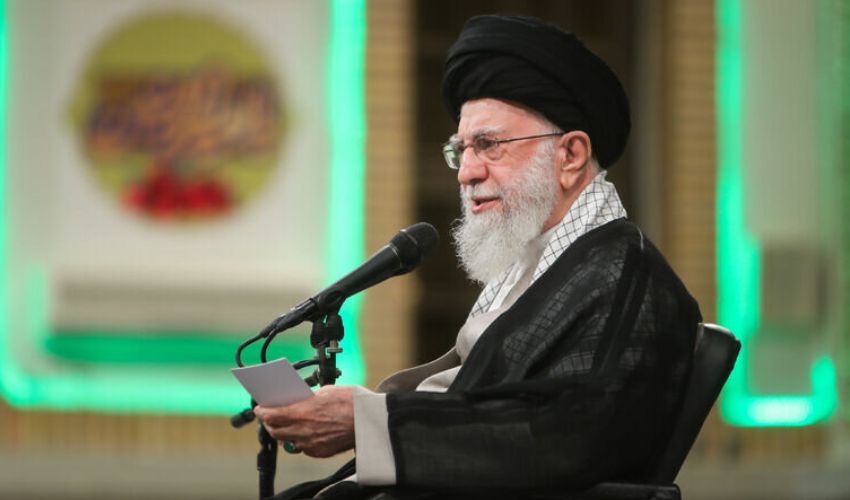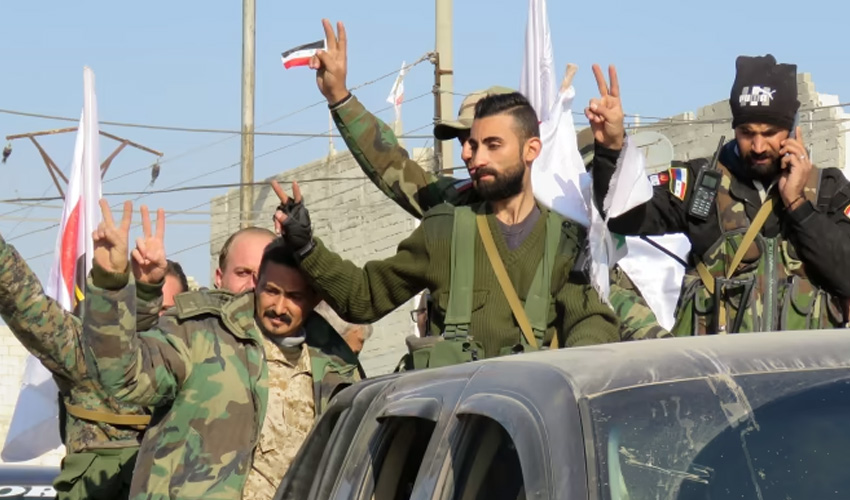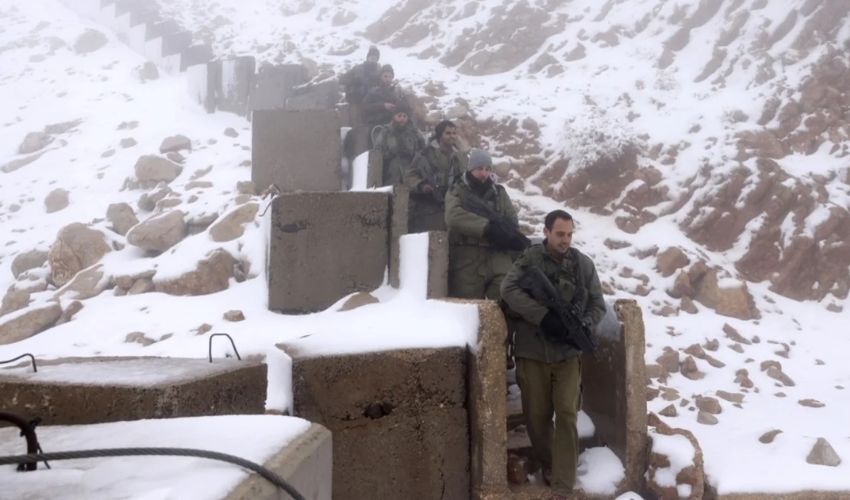Live Updates: Iran unleashes hypersonic, ballistic missile barrage on Israel in escalating conflict
IDF says over 400 ballistic missiles fired from Iranian territory; US warns Tel Aviv ahead of attack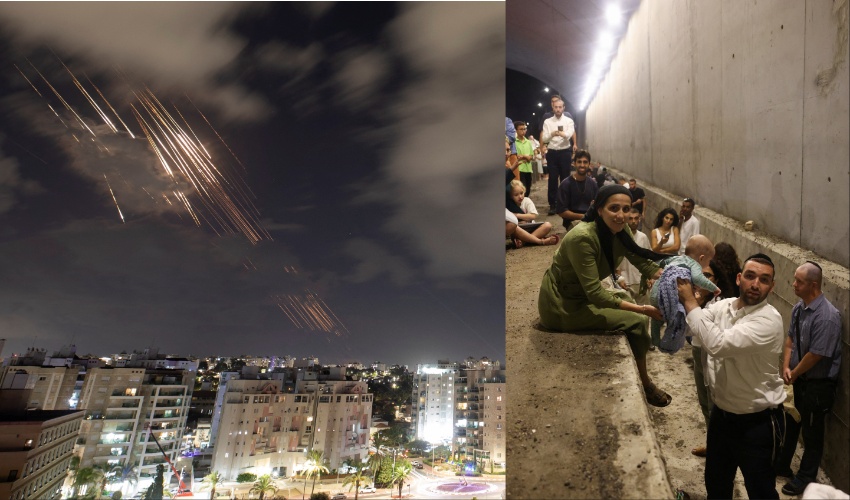
US condemns Iran's attack on Israel, vows severe consequences
The United States has strongly condemned Iran's missile attack on Israel, with top American officials reaffirming unwavering support for Israel as tensions in the Middle East continue to escalate.
US State Department spokesperson Matthew Miller, who said Washington remained in constant contact with Israeli officials during the attacks, reiterated that "Israel has the right to defend itself."
He also confirmed that the United States is closely monitoring the situation and consulting with allies about next steps. "We are in contact with our allies on the current situation and will continue to do what is in our best interest," Miller said, emphasizing the US's firm stance.
Miller also pointed to Iran's long history of sponsoring terrorism. "What Iran has done is terrorism. It has been sponsoring terrorists for many years," he said, adding that Iran's recent actions -- firing more than 200 missiles at Israel -- were just the latest in a series of aggressive provocations.
US National Security Adviser Jake Sullivan confirmed that the United States actively cooperated with the Israel Defence Forces (IDF) in thwarting the missile attacks. "The US worked closely with the IDF to neutralize threats and is currently evaluating further risks from Iran and its proxies," Sullivan stated, underscoring the close military coordination between the two allies.
"This is a significant escalation by Iran, a significant event," Sullivan told reporters at the White House. "We have made clear that there will be consequences, severe consequences, for this attack, and we will work with Israel to make that the case."
Sullivan did not specify what those consequences might be, but he stopped short of urging restraint by Israel as the US did in April when Iran carried out a drone and missile attack on Israel.
Biden was reported to have urged Netanyahu to "take the win" and refrain from retaliation after Iran's April attack to avoid a wider regional war, given that Israel was largely unscathed.
In a separate statement, US Secretary of State Antony Blinken condemned Iran’s missile barrage, calling it "unacceptable" and urging the international community to unite against Tehran's aggression. "The whole world should condemn Iran's attack," Blinken said, adding, "America will always stand with Israel."
The Iranian missile strike, which involved nearly 200 projectiles, represents one of the most significant escalations in the ongoing conflict between Iran and Israel. The attacks came in response to Israel’s military campaign in Lebanon, which has killed hundreds and displaced over a million people. While Israel reported no injuries from the missile strikes, the situation has significantly heightened fears of a broader conflict.
The Biden administration has made it clear that while it seeks de-escalation, the U.S. will take firm measures to protect its interests and those of its allies in the Middle East. "Iran is a group of terrorists, and it will be held accountable for its actions," Miller said, in a final rebuke to Tehran’s leadership.
The international community now anxiously watches for the next steps as both Israel and the United States weigh their options for retaliation, raising concerns about the potential for a wider regional war.
Netanyahu says Iran made a big mistake and will pay
Pentagon chief tells Israel: US 'well-postured' against Iran
US Secretary of Defense Lloyd Austin spoke to his Israeli counterpart late on Tuesday, hours after Iran's missile attack on Israel following Israel's military campaign in Lebanon, and said Washington was "well-postured" to defend its interests in the Middle East.
Why it's important
Earlier in the day, Iran fired ballistic missiles at Israel in retaliation for Israel's military campaign in Lebanon that has killed hundreds and displaced over a million people.
Iran later said its missile attack on Israel was over, barring further provocation. No injuries were reported in Israel and Washington called Iran's attack ineffective.
What's next
Israel and the US have promised to retaliate against Tehran as fears of a wider war intensify.
Key quotes
"The Secretary (Austin) reaffirmed that the United States remains well postured to defend US personnel, allies, and partners in the face of threats from Iran and Iran-backed terrorist organizations," the Pentagon said in a statement after Austin's call with Israeli Defense Minister Yoav Gallant.
"The minister and I expressed mutual appreciation for the coordinated defense of Israel against nearly 200 ballistic missiles launched by Iran and committed to remain in close contact," Austin said separately in a post on X.
Context
Israel has escalated its military campaign in Lebanon in recent days, launching operations that the Israeli military says are targeting Lebanese Iran-backed Hezbollah militants.
Israel is also waging a war in Gaza, which followed a deadly Oct 7 attack on Israel by Palestinian Hamas militants. Israeli's military assault on Hamas-governed Gaza has killed tens of thousands of people, displaced nearly everyone there, caused a hunger crisis in the enclave.
Iran says attack on Israel is over as fears grow of wider conflict
Iran said early on Wednesday that its missile attack on Israel was over barring further provocation, while Israel and the US promised to retaliate against Tehran as fears of a wider war intensified.
Washington said it would work with longtime ally Israel to make sure Iran faced "severe consequences" for Tuesday's attack, which Israel said involved more than 180 ballistic missiles.
The United Nations Security Council scheduled a meeting about the Middle East for Wednesday, and the European Union called for an immediate ceasefire.
"Our action is concluded unless the Israeli regime decides to invite further retaliation. In that scenario, our response will be stronger and more powerful," Iranian Foreign Minister Abbas Araqchi said in a post on X early on Wednesday.
Israel renewed its bombardment early on Wednesday of Beirut's southern suburbs, a stronghold of the Iran-backed armed Hezbollah group, with at least a dozen airstrikes against what it said were targets belonging the group.
Large plumes of smoke were seen rising from parts of the suburbs. Israel issued new evacuation orders for the area, which have largely emptied after days of heavy strikes.
Iran's biggest attack on Israel
Iran's attack marked it biggest ever military blow against Israel.
Sirens sounded across the country and explosions rattled Jerusalem and the Jordan River valley as the entire population was told to move into bomb shelters.
No injuries were reported in Israel, but one man was killed in the occupied West Bank, authorities there said.
Iran described the campaign as defensive and solely aimed at Israeli military facilities. Iran's state news agency said three Israeli military bases had been targeted.
Also Read: Iran’s IRGC claims missile attack on Israel is retaliation for Nasrallah’s killing
Tehran said its assault was a response to Israeli killings of militant leaders and aggression in Lebanon against Hezbollah and in Gaza.
Israel activated air defences against Iran's bombardment and most missiles were intercepted "by Israel and a defensive coalition led by the United States," Israeli Rear Admiral Daniel Hagari said in a video on X, adding: "Iran's attack is a severe and dangerous escalation."
Israeli Prime Minister Benjamin Netanyahu vowed to hit back.
"Iran made a big mistake tonight - and it will pay for it," he said at the outset of an emergency political security cabinet meeting late on Tuesday, according to a statement.
Iran's General Staff of the Armed Forces said in a statement carried by state media that any Israeli response would be met with "vast destruction" of Israeli infrastructure. It also said it would target regional assets of any Israeli ally that got involved.
Fears that Iran and the U.S. could be drawn into a regional war have risen with Israel's growing assault on Lebanon in the past two weeks, including the start of a ground operation there on Monday, and its year-old conflict in the Gaza Strip.
Iran's forces on Tuesday used hypersonic Fattah missiles for the first time, and 90% of its missiles successfully hit their targets in Israel, the Revolutionary Guards said.
Also Read: Israel vows swift retaliation following Iranian missile strikes
Israel's Hagari said central and southern Israel received limited strikes. A video released by the military showed a school in the central city of Gadera heavily damaged by an Iranian missile.
U.S. Navy warships fired about a dozen interceptors against Iranian missiles headed toward Israel, the Pentagon said. Britain said its forces played a part "in attempts to prevent further escalation in the Middle East", without elaborating.
U.S. President Joe Biden expressed full U.S. support for Israel and described Iran's attack as "ineffective." Vice President Kamala Harris, the Democratic candidate for U.S. president, backed Biden's stance and said the U.S. would not hesitate to defend its interests against Iran.
"We will act. Iran will soon feel the consequences of their actions. The response will be painful," Israel's U.N. Ambassador Danny Danon told reporters.
US does not urge restraint
The White House similarly promised "severe consequences" for Iran and spokesman Jake Sullivan told a Washington briefing the U.S. would "work with Israel to make that the case."
Sullivan did not specify what those consequences might be, but he stopped short of urging restraint by Israel as the U.S. did in April when Iran carried out a drone and missile attack on Israel. The Pentagon said Tuesday's airstrikes by Iran were about twice the size of April's assault.
UN Secretary-General Antonio Guterres condemned what he called "escalation after escalation", saying: "This must stop. We absolutely need a ceasefire."
French President Emmanuel Macron said in a statement that he strongly condemns Iran's new attacks on Israel, adding that in a sign of its commitment to Israel's security it mobilised its military resources in the Middle East on Wednesday.
Macron reiterated France's demand that Hezbollah cease its terrorist actions against Israel and its population, but also wished for Lebanon's sovereignty and territorial integrity to be reinstated in strict compliance with a United Nations Security Council resolution.
EU foreign policy chief Josep Borrell also called for an immediate regional ceasefire. "The dangerous cycle of attacks and retaliation risks ... spiralling out of control," he posted on X.
British Prime Minister Keir Starmer spoke with the leaders of Germany and France, and they agreed on a need for restraint from all sides, Downing Street said.
Nearly 1,900 people have been killed and more than 9,000 wounded in Lebanon in almost a year of cross-border fighting, most in the past two weeks, according to Lebanese government statistics on Tuesday.
PIA suspends flights over Iranian airspace after missile attack on Israel
Pakistan International Airlines (PIA) has announced the suspension of all flights using Iranian airspace in the wake of Iran’s large-scale missile attack on Israel.
The national carrier has redirected its flight routes until further notice, as the airline waits for the situation to become clearer.
Temporary suspension of key corridors
According to a PIA spokesperson, the airline has issued directives to its captains and flight operations, instructing them to avoid Iranian airspace for safety reasons.
The flight plans of affected routes, including those to the UAE, Bahrain, Doha, and Saudi Arabia, which rely on the Southern Corridor, are being rearranged. Meanwhile, flights to Canada and Turkey, which typically use the Northern Corridor of Iranian airspace, have also been rerouted.
“The Iranian airspace will not be used until the situation is clarified,” the spokesperson stated, emphasizing the need for caution during the ongoing conflict.
This decision follows Iran’s recent attack on Israel, during which hundreds of ballistic missiles were reportedly fired towards Israeli targets. Foreign media outlets have claimed that around 400 missiles were launched, though Israeli officials confirmed the firing of at least 102 missiles.
The sudden escalation has raised concerns over the safety of commercial air routes across the region, prompting PIA’s precautionary measures.
Israel vows swift retaliation following Iranian missile strikes
Israeli military spokesperson Daniel Hagari affirmed that the Israeli Defense Forces (IDF) are “fully prepared to defend and retaliate” in response to the recent missile attacks from Iran.
Stressing the need for a decisive response, Hagari declared that any retaliation would occur in a “timely manner” as the nation braces for further developments in the escalating conflict.
Injuries reported amid missile strikes
The Iranian missile barrage has already caused injuries, with Israeli newspaper Haaretz reporting that two individuals suffered minor wounds in Tel Aviv as a direct result of the missile attack. Additionally, others were injured while rushing to safety in response to the incoming threats.
The missile strikes from Iran mark a significant escalation in the ongoing conflict between the two nations, following weeks of heightened tensions and mutual provocations. As the situation unfolds, the Israeli military is on high alert, with defenses bolstered and preparations for potential countermeasures firmly in place.
Call for vigilance
The Israeli government has urged citizens to remain vigilant and follow safety protocols, as the threat of further missile strikes looms. Residents are advised to familiarize themselves with emergency procedures and seek shelter immediately when sirens sound.
Biden orders US military to shoot down Iranian missiles targeting Israel
US President Joe Biden ordered American forces to intercept and shoot down the missiles launched from Tehran.
The White House issued the statement shortly after Iran fired more than 200 ballistic missiles at key Israeli locations, including Tel Aviv, as tensions in the Middle East continued to rise.
The White House confirmed that both President Biden and Vice President Kamala Harris were monitoring the situation from the Situation Room. “We are committed to defending our allies, and any attack on Israel will not go unanswered,” the statement said.
This is not the first time the U.S. military has played an active role in countering missile threats in the region. During Iran’s previous strike on Israel in April, American forces were instrumental in intercepting incoming missiles, demonstrating Washington's support for Israel's defense efforts.
The U.S. has increased its military presence across the region in recent months, positioning troops and equipment to respond quickly to any escalations. The Pentagon has been closely monitoring Iranian-backed militias in Iraq and Syria, which have previously targeted U.S. military bases in the region.
American troops not targeted
The Washington Post, citing three anonymous Pentagon officials, reported that American troops stationed in the Middle East were not targeted during the latest Iranian missile strikes. This comes after numerous incidents in recent years where Iraqi groups linked to Iran fired rockets at military bases housing U.S. soldiers in Iraq and Syria.
The latest escalation comes amid heightened tensions between Israel and Iran, following the killing of Hezbollah leader Hassan Nasrallah, an Iranian ally, earlier this month. As the region braces for further developments, the U.S. has reit
Iran’s IRGC claims missile attack on Israel is retaliation for Nasrallah’s killing
Iran’s Islamic Revolutionary Guard Corps (IRGC) has claimed responsibility for the ongoing missile strikes on Israel, citing the death of Hezbollah chief Hassan Nasrallah as the key motive.
According to Iran’s Fars News Agency, the IRGC stated that the attack also avenged the killing of Hamas leader Ismail Haniyeh earlier this year, along with IRGC commander Abbas Nilforoushan.
“In response to the martyrdom of Ismail Haniyeh, Hassan Nasrallah, and [IRGC commander Abbas] Nilforoushan, we targeted the heart of the occupied territories,” the IRGC said in a statement on Monday.
The missile strikes, which began earlier in the day, have primarily targeted Tel Aviv and other key locations within Israel.
Iran’s mission to UN
Tehran’s mission to the United Nations confirmed the missile strikes had ended but warned Israel against any retaliatory measures.
In a social media post, the mission described Iran’s missile attack as a "legal, rational, and legitimate" response to Israel’s earlier actions, which they claim infringed upon Iranian sovereignty by targeting Iranian nationals.
“Iran’s legal, rational, and legitimate response to the terrorist acts of the Zionist regime—which involved targeting Iranian nationals and interests—has been duly carried out,” the mission wrote, indicating that Iran considers the issue resolved, for now.
The missile strikes mark the latest chapter in the ongoing conflict between Israel and Iran, heightening tensions throughout the region. The killing of Nasrallah, whose Hezbollah movement has long been a key Iranian ally in the region, has drawn widespread condemnation from Tehran. Though details surrounding the assassination remain unclear, Iran views it as a direct provocation, triggering the latest wave of missile attacks.
Iran unleashes hypersonic, ballistic missile barrage on Israel in escalating conflict
In an unprecedented escalation, Iran has reportedly launched a series of ballistic missiles targeting Israel, according to Arab media.
The Israeli military confirmed the attack, stating that over 400 missiles had been fired from Iranian territory, primarily aimed at Tel Aviv. Sirens blared across occupied Jerusalem, warning residents to seek shelter as tensions between the two adversaries reached a boiling point.
The Israeli Defense Forces (IDF) said the barrage began late Monday, with 102 ballistic missiles aimed at key locations in Israel, particularly its economic hub, Tel Aviv.
The missile strikes come just hours after warnings from the United States, alerting Israeli authorities of a possible attack by Iran. Israel has placed its military on high alert, with Israeli citizens urged to move to safer areas amid the growing uncertainty.
Iran yet to confirm missile strikes
As of now, Iran has not officially confirmed the attack. However, Israeli military spokesperson Daniel Hagari stated that preparations had been made in light of the intelligence shared by the U.S., which pointed to an imminent attack from Tehran. The Israeli government, bracing for further strikes, has mobilized its defense systems to intercept incoming missiles.
"The United States has been working closely with Israeli officials, sharing real-time intelligence regarding Iran's movements and possible missile launch," Hagari told reporters. "We are fully prepared to defend our nation."
The attack comes as Israel enters Rosh Hashanah, the Jewish New Year, adding further strain on the country's already tense atmosphere. Public movement has been restricted, and the Israeli government has declared a state of emergency in certain regions to prevent any civilian casualties.
According to analysts, Iran’s missile attack could be in retaliation for Israel’s recent military operations in Lebanon. Israel’s recent covert missions, including intelligence gathering and targeted strikes in Lebanon, have raised tensions across the region.
Menachem Klein, a political scientist from Bar-Ilan University in Israel, told Al Jazeera that the Israeli public and media had been emboldened by the country’s recent military successes. However, the missile strikes have tempered public sentiment, leading many to reconsider calls for aggressive action against Iran’s nuclear program.
No casualties reported yet, but fears loom
There have been no reports of casualties so far, but fears are mounting that further attacks may follow. Israel’s defense systems, including the Iron Dome, are currently active and working to intercept the ballistic missiles. The situation remains fluid, with both sides prepared for potential escalation.
International observers have expressed concerns that this new wave of violence could further destabilize the already fragile Middle East. The United Nations and other global leaders have called for restraint, urging both Iran and Israel to avoid escalating tensions further.
Global reaction and outlook
The New York Times, citing Israeli and U.S. officials, had earlier reported that Iran was preparing for an attack on Israel within hours, adding to the growing anxiety in the region.
World leaders, including those in Europe and the Middle East, have called for de-escalation, fearing that the conflict could spiral out of control.

